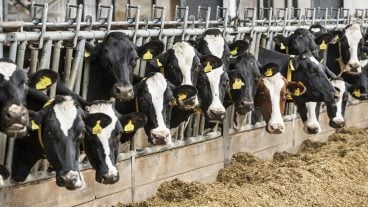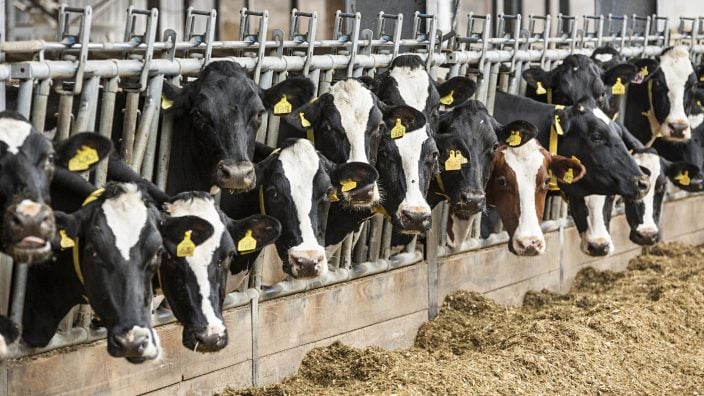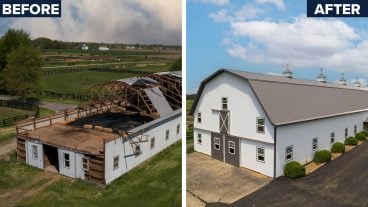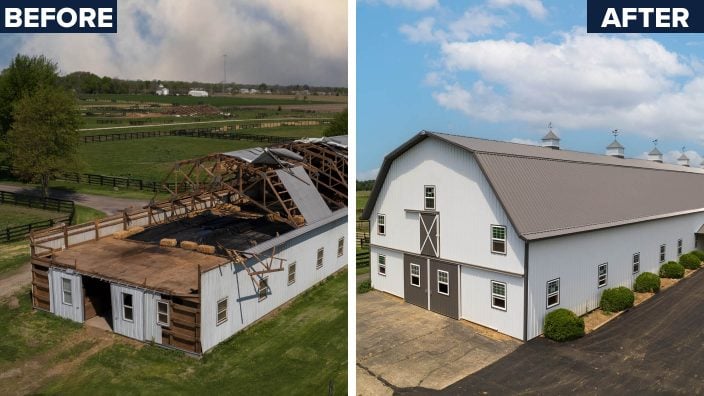Farmer’s Guide to Trucking Regulations available to Ohio Farm Bureau members
The guide includes a farm driver checklist, overview of state and federal regulations and exemptions, CDL qualifications and more.
Read More
Ohio has a new budget for fiscal years 2022-2023. The $74 billion budget includes education reform, statewide cuts to personal income taxes, and investments to help keep Ohioans employed and to create more job opportunities across the state. It also checks many other Ohio Farm Bureau priority issues boxes.
“From rural broadband and local meat processing capacity, to funding for H2Ohio, the Ohio Department of Agriculture and Ohio State, lawmakers and Governor DeWine heard from Ohio Farm Bureau and our members and responded to the issues laid out in our Ohio Agriculture and Rural Communities Action Plan with this new budget,” said Adam Sharp, executive vice president of Ohio Farm Bureau. “We appreciate the legislature and the administration for their recognition of the challenges facing Ohio’s farm and food sector and for the action to provide funding to address the concerns of their rural constituents across the state.”
One of the biggest line items in the new biennial budget is $250 million for the Ohio Rural Broadband Expansion grant program, created earlier this year by lawmakers to allow internet service providers to apply for grants that will help fund the infrastructure needed to provide faster internet access to underserved rural Ohio communities.
“This is the largest public investment in broadband we have ever seen in Ohio,” said Jenna Reese, Ohio Farm Bureau’s director of state policy. “Broadband access is essential in rural Ohio for many reasons. Farmers use it to market their products, to keep track of commodity prices and to utilize new precision technology. Rural Ohioans’ quality of life depends on technology, and their need for reliable internet access is critical.”
Gov. Mike DeWine’s H2Ohio initiative, a comprehensive, data-driven water quality plan to reduce harmful algal blooms, improve wastewater infrastructure and prevent lead contamination, received $170 million in the budget – $49.3 million of that will be used to expand the program to 10 additional counties in the Lake Erie Watershed.
The budget also created the Meat Processing Investment grant program and funded it at $10 million to help existing plants in Ohio expand their capacity and fund new construction, including guidelines for reviewing and approving the grants.
“This is specifically for small and medium-sized meat processors in Ohio to start up or expand their operation,” said Brandon Kern, senior director of state and national policy for Ohio Farm Bureau. “The goal is to increase meat and poultry processing capacity in Ohio to make our food system more resilient for farmers and consumers.”
DeWine signed the budget into law July 1.


The guide includes a farm driver checklist, overview of state and federal regulations and exemptions, CDL qualifications and more.
Read More


ODA will enroll 500,000 acres into the program for a two-week sign-up period, beginning April 22, 2024, through May 6, 2024. Contact local SWCD offices to apply.
Read More

Katie Share of Columbus has been named ExploreAg and Youth Development Specialist for Ohio Farm Bureau.
Read More

Mary Klopfenstein of Delphos has been named Young Ag Professional and Ag Literacy Program Specialist for Ohio Farm Bureau.
Read More

The plan has been updated to give sole proprietors access to more rate stability and a smart solution that offers potential savings on health care.
Read More

The American Farm Bureau Federation, in partnership with Farm Credit, is seeking entrepreneurs to apply online by June 15 for the 2025 Farm Bureau Ag Innovation Challenge.
Read More

Adele Flynn of Wellington has been elected treasurer of the Ohio Farm Bureau Federation and now holds the third highest elected office in Ohio’s largest and most influential farm organization.
Read More

Producers are urged to work with their veterinarian to practice enhanced biosecurity measures and review and limit cattle movements within production systems.
Read More

The changing seasons bring with them the need to thoroughly inspect pole barns for any damages that may have occurred during the winter months.
Read More

Hundreds of Ohio businesses and sole proprietors are raving about Ohio Farm Bureau’s Health Benefits plan with lower, predictable costs and easy enrollment and administration options.
Read More